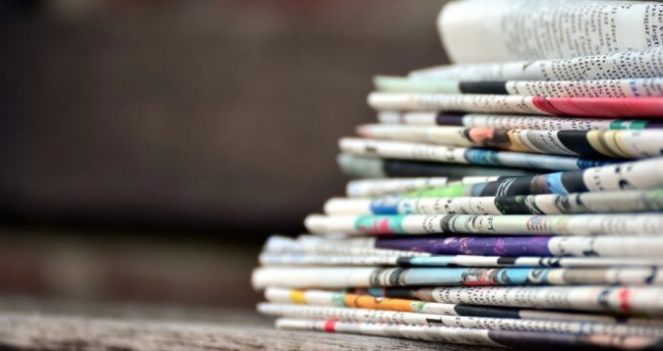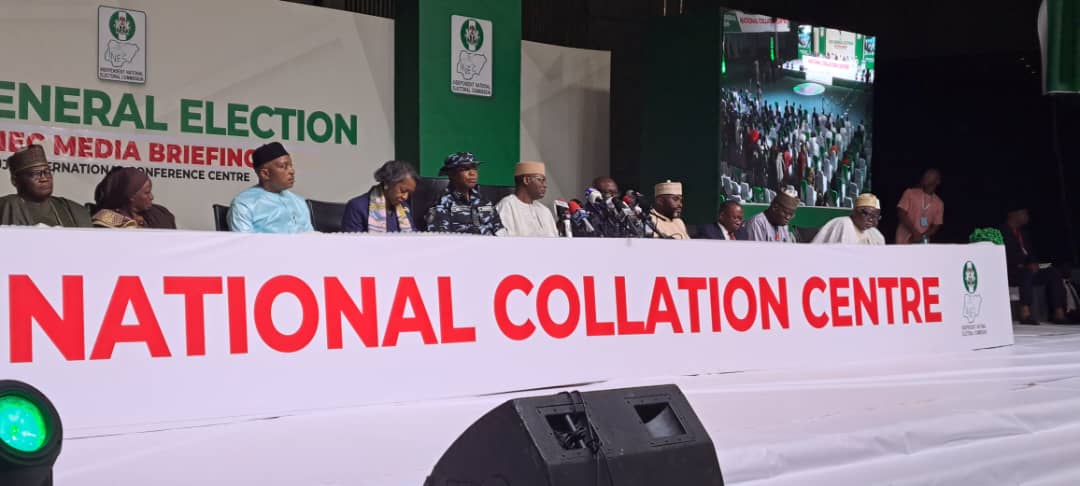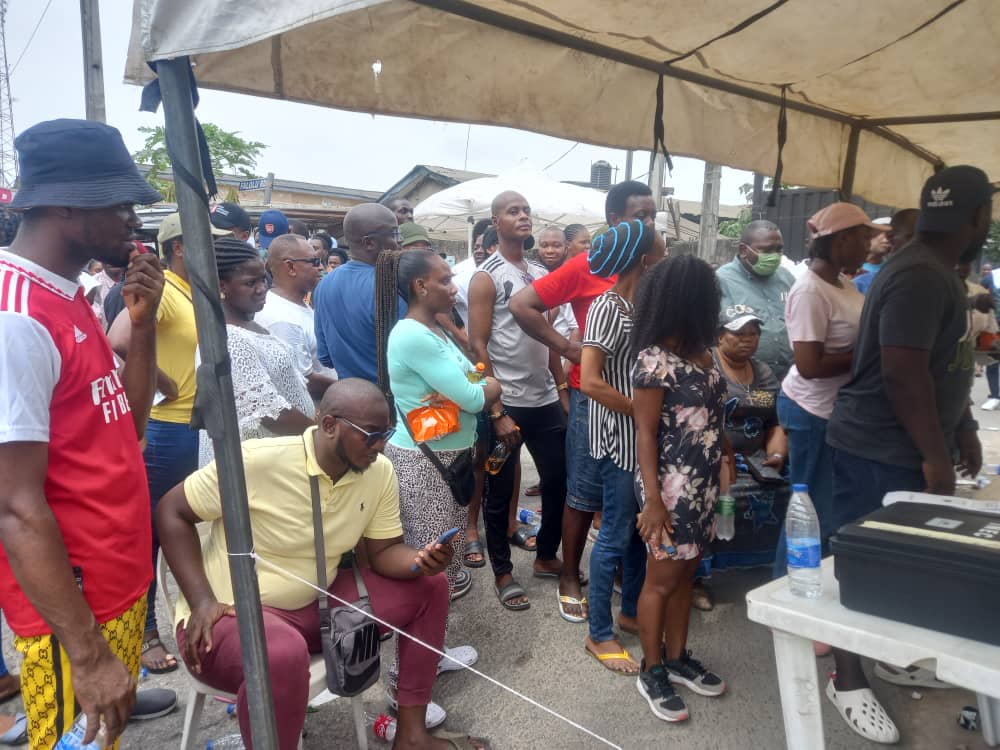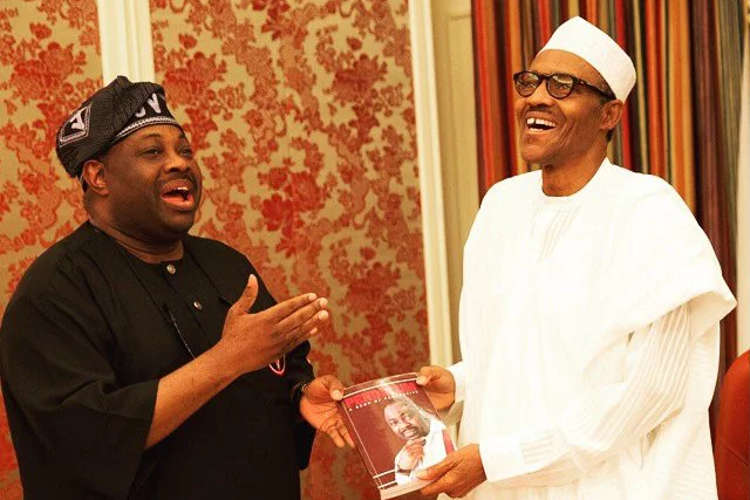Nigerians renewed their desire for a better country yesterday when they went to the polls to elect the next president, 108 senators (no election in Enugu East because of a candidate’s death) and 360 members of the house of reps. Two weeks from now, they will elect 28 governors and 993 state lawmakers. After inauguration, there will be new appointees: dozens of ministers, hundreds of commissioners, thousands of directors-general, executive secretaries, executive chairpersons, managing directors, and board members across Nigeria. We have 774 council chairpersons and thousands of councillors. We are blessed with thousands of judges presiding over the courts.
But you know what? Of the lot, the president is the only person expected by Nigerians “to fight corruption”. If corruption does not reduce in four or eight years, they will promptly place the blame squarely at the doorstep of whoever is president. But I have news for you: councillors, council chairpersons, state lawmakers, governors, ministers, federal legislators, heads of agencies, directors and judges are also all empowered to fight corruption. However, because of the way we are wired in Nigeria, we always think it is only the president that should or can fight corruption. This erroneous mindset has always made us fall for presidential candidates since 1999. They play on our emotions.
First, a caveat: the president has a key role to play in the war against corruption. He is the president, the No 1 citizen, the leader of the country. He has the duty to inspire us, to live above board, to deploy the force of personal example and engender a society where transparency, accountability and integrity are core values. There is a saying that the fish gets rotten from the head. If the president of a country is a buccaneer, why would you expect his ministers and other appointees not to be buccaneers too? You cannot blame the rest of the society for taking their cue from him. That is why what is called “tone at the top” matters a lot: the president cannot dodge the responsibility.
But this cannot explain everything about our expectations of the Nigerian president. If a local government official in Damaturu collects a bribe to issue a state of origin certificate, we think it is because the president, sitting in his office in Abuja, is not fighting corruption. If an official of LASTMA extorts a motorist in Alagbado, we blame it on the president. If a police officer collects a N500 bribe (either in new or old naira notes) from a complainant in Lampese, the president is definitely the one to take the blame, as far as we are concerned. We have this weird mindset that the misdemeanours of the field agents of federal, state and local governments should be blamed on the president.
Advertisement
Let us now inverse this. Imagine that the DPO at the police station is a person of integrity, one who will not demand “returns” from those under his watch, one who will not make “returns” to his area commander, one who will not ask complainants to pay for “biro and paper” to write a statement. How good and pleasant it would be before God and man! The job of fighting corruption becomes a shared responsibility between the president and the DPO. In this case, the DPO is the president of the police station. He is fighting corruption in his corner. You can apply this logic to all the extortionists in government agencies that interface with the public and make life difficult for them.
Whenever I hear some Nigerians argue about the fight against corruption, I often come away with the impression that the governors were elected to steal. So, the governors will loot the state funds, buy houses in Dubai and Dublin, buy hotels all over the world and acquire private jets. That is their own part of the deal. The president is then mandated, in our logic, to unleash the Economic and Financial Crimes Commission (EFCC) on them, to get them embarrassed, arrested and jailed in foreign lands. In other words, the leadership for anti-corruption war is on the shoulders of the president alone. Governors are not supposed to be anti-corruption champions in their own right.
Let us step back a bit again. Imagine a situation where the governor is leading by example, tough on corruption, and brutal on inflation of contracts and budget padding. Imagine that the governor fires commissioners and agency heads for corruption and charges them to court immediately and the culprits are diligently prosecuted and jailed. Imagine that village associations and traditional rulers openly celebrate the governor for firing their “sons” and “daughters” who disgraced them in public office! Imagine the impact this will have on reducing corruption. The governor is the president of his state in this instance and is the one leading the campaign for transparency and the war against graft.
Advertisement
Because we are fully sold to the error that it is the responsibility of only the president to fight corruption, we have often missed the argument. At this point, I have a mini-confession to make. When Candidate Olusegun Obasanjo was bidding to be president of Nigeria in 1999, one of the reasons I supported him wholeheartedly was his promise to fight corruption. I still recollect the day he was sworn in at the Eagle Square, Abuja, on May 29, 1999. When it got to the part of his speech where he was saying “I will fight corruption” — which he repeated with emphasis — my head was spinning. Finally, I said, we had a president who would deal a fatal blow on this endemic epidemic.
Although he set up the EFCC and the Independent Corrupt Practices and Other Related Offences Commission (ICPC), and even though governors were arrested and most times illegally impeached, corruption still went on unperturbed. I gradually became despondent and disenchanted, especially as I discovered many things that were going on in Obasanjo’s government which directly contradicted his public posture of being an anti-corruption champion. I was attacking Obasanjo regularly in my column for not fighting corruption. I had been completely sucked in by his key campaign promise of fighting corruption and I was expecting an all-out war like under military rule.
After Obasanjo left office, I became sober. Although Obasanjo tried to combat the plague in his way, and even though he had his own contradictions, the reality was that there was only a distance a president could go. Fighting corruption is a war that must be waged on all fronts and by all arms of government: the executive, the legislature and the judiciary. If lawmakers are inflating budgets to get kickbacks, what can the president do? He cannot sack a legislator. He can sack the erring minister, which I think is the barest minimum. But what happens if the EFCC charges the sacked minister and the looting lawmaker to court and the judge takes bribes to pervert justice?
In the end, all that the president can do is fight what is within his ambit. He should appoint people of integrity into his government, keep them in check and wield the axe when necessary — at least to send the right signals that this is not business as usual. He can embark on administrative and institutional reforms that will help track and tame leakages in the system. He can lead the way with the optics, with the right attitude, and with the right conduct. He can stamp his feet and stand his ground on matters of integrity and accountability. He must not, by omission or commission, give the impression that “all animals are equal, but some are more equal than the others”. Non-negotiable.
Advertisement
Ladies and gentlemen, that is basically all he can do. He does not make the laws. Even though the anti-graft agencies report to him, he is not going to be the judge when the suspects are charged to court. He cannot be sitting in Aso Rock and watching over a desk officer asking for N100,000 to help you fix an appointment to “capture” at the passport office in Abeokuta. He cannot fire a state commissioner for corruption on behalf of the governor and charge him to court. He cannot be at Seme border to prevent Customs officers from collecting bribes to aid smuggling. The president can make as many promises to “fight corruption” as he likes, but he is only as good as his field agents.
If we are ever going to make significant progress in the war against corruption, certain things must be in place. Experts have researched different countries and come to various reasoned conclusions. The “tone at the top” is critical, and this is where the president comes in — even though I would also say “tone at the top” applies to every governor, agency head and even unit head. There must also be sanctions, applied without fail. Again, it is not solely the job of the president — I would say the judiciary is an important agency here. There must also be preventative systems to curb corruption — procurement processes, open budgeting, freedom of information, asset declaration and such like.
Above all, and this is the one I believe is the most effective weapon: the society must buy into the war. We cannot wage an effective anti-corruption war if the society is pro-corruption. We do not want to go through due process; we would rather bribe our way. We feel entitled when we get into public office or when someone we know does. We would not engage a lawyer if we are in trouble with the police but would rather peddle influence by calling the DPO, commissioner or the IGP. We do not want accountability and transparency when it comes to public officers who share religious, ethnic, regional or political affinity with us, but we become vocal when someone else is the culprit.
This instalment is the final of my series on the “Common Errors about Nigeria”. In all, I sought to dispel certain notions that we have accepted as absolute truths in Nigeria which evidence does not support. One, Nigeria is not as rich as we claim; we are only potentially rich. Two, Nigeria’s underdevelopment is not solely the fault of the president. All tiers of government are culpable. Three, the 1999 Constitution is not responsible for our underdevelopment. Four, the impact of vote-buying on presidential elections is grossly exaggerated. Finally, no president can fight corruption single-handed: he can only lead a willing chain of segments and sections of the state and the society.
Advertisement
AND FOUR OTHER THINGS…
SUPREME SACRIFICE
On paper, whoever triumphs in the presidential election should be celebrated as having won the freest and fairest election in our history. Why? INEC has been praised for cleaning up the system and leveraging on technology to transmit results and tackle overvoting. Also, the federal government has made the naira difficult to come back in order to curb “vote-buying”, with hundreds of millions of Nigerians suffering untold hardship. Some have made the supreme sacrifice. Tertiary institutions were shut down to allow students go home to vote. You would therefore expect that there should be no dispute over the outcome. But this is Nigeria, where things are unpredictable. Complicated.
Advertisement
CURFEW CULTURE
Mr Usman Baba, the inspector-general of police (IGP), on Thursday ordered the restriction of vehicular movement across the country on the day of the presidential election. This started from midnight of Friday and lasted till 6pm on Saturday. In nearby Ghana, elections are held on a weekday and there is no restriction of movement. Why are we so special in Nigeria? Curfew is one of the major features of a military regime that we inherited and we have continued with it without thinking twice or asking questions. Election periods always disrupt our lives and hurt economic activities and we have accepted that as God’s will. When are we going to have a normal society again? Twisted.
Advertisement
BUHARI’S BUDDIES
Since President Buhari decided to change the colours of the national currencies under the naira redesign policy, I have noticed an unusual love for him by the PDP. In the suit filed against the president by his own party, APC, some PDP governors applied to join as defendants. The opposition figures not only praised Buhari, they said he should not move the deadline for the old notes. And then Timothy Osadolor, deputy national youth leader of the PDP, issued a statement warning APC leaders that nothing must happen to the president! The same PDP classified the same Buhari and his APC as failures during campaigns. If you live long enough, you’ll experience everything. Amazing.
Advertisement
PEACE, PLEASE!
On Friday, an audio recording purportedly captured Alhaji Atiku Abubakar, the PDP presidential candidate, planning to rig the election. The moment I heard the so-called Atiku refer to the governor of Sokoto state as “Tambuwal”, I smiled. He would normally call him “Aminu”. I laughed further when “Tambuwal” called him “Atiku Abubakar”. Poor job. This was deepfake technology at work. I have a strong suspicion that a body similar to Cambridge Analytica was involved in the propaganda around this election. Some pre-election media spins appeared to have been orchestrated and co-ordinated. I just pray that desperate people won’t set this country on fire, post-election. Peace.







